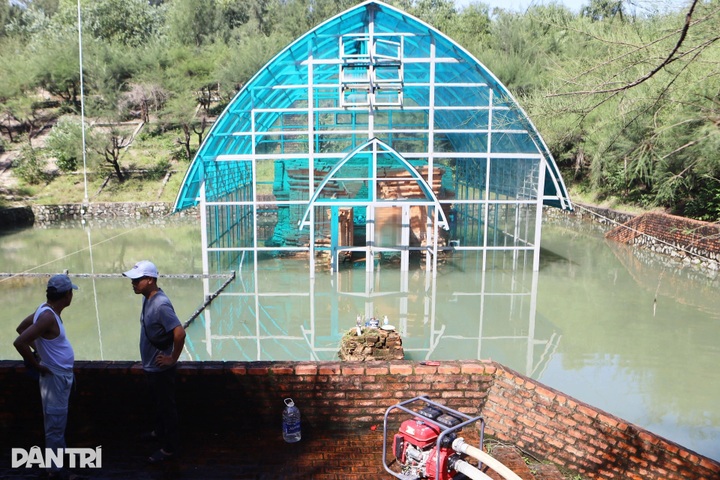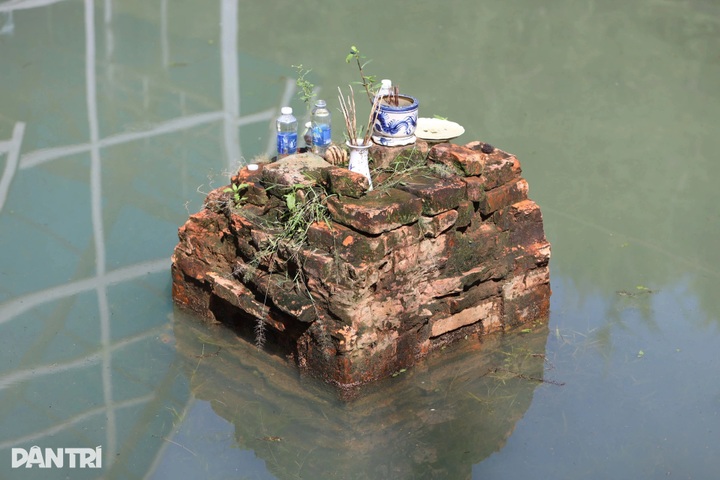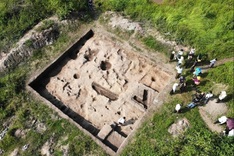
Since October 25, Hue has seen record rainfall, leading to widespread inundation, including at the Phu Dien Cham Tower near the coast in Phu Vinh Commune.

Nguyen Duc Loc, Director of the Hue City Museum of History, said continuous rain and high tides left water about 60 centimetres deep at the tower.

The protective fence around the tower’s foundation collapsed and is now submerged.

Wwater has flooded the 1.4-metre-high square brick altar in front of the main tower.

Hoang Hai Minh, Vice Chairman of the Hue People’s Committee, inspected the site on November 7, criticised delayed reporting, and ordered water to be pumped out immediately.

Pumps have since been deployed to remove floodwater.

The tower was discovered in April 2001 by titanium-mining workers. At the time, it lay 5 to 7 metres beneath sand, 3 to 4 metres below sea level, and about 120 metres from the shoreline.

Dating to the 8th century, Phu Dien is among the earliest surviving brick Cham structures in central Vietnam, notable for its unique location and archaeological value.

In 2022, it received two records, recognised by VietKings as the first brick Cham tower excavated and preserved beneath a coastal sand dune in Vietnam, and by WorldKings as the first such structure preserved globally.




















